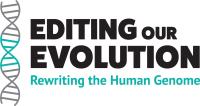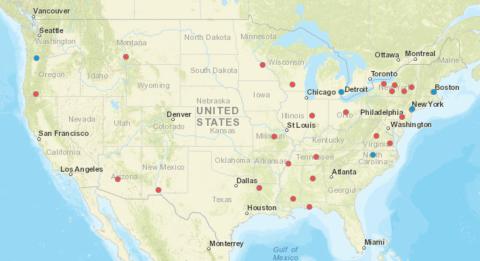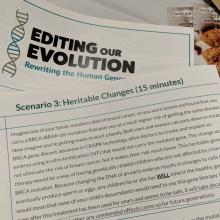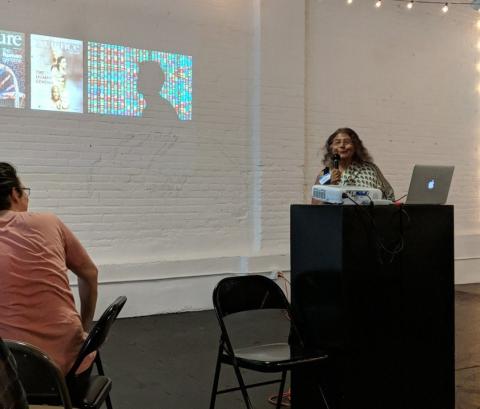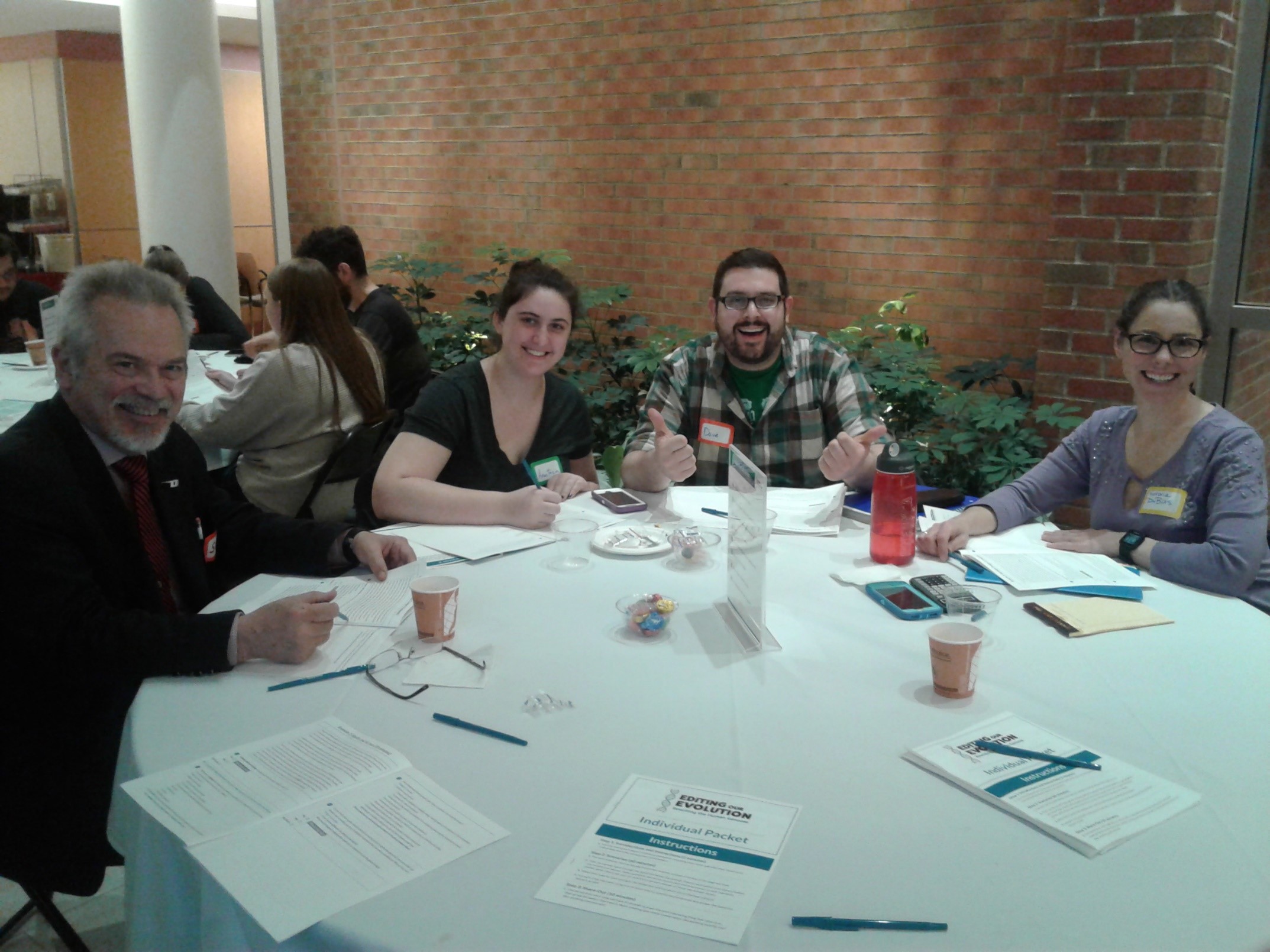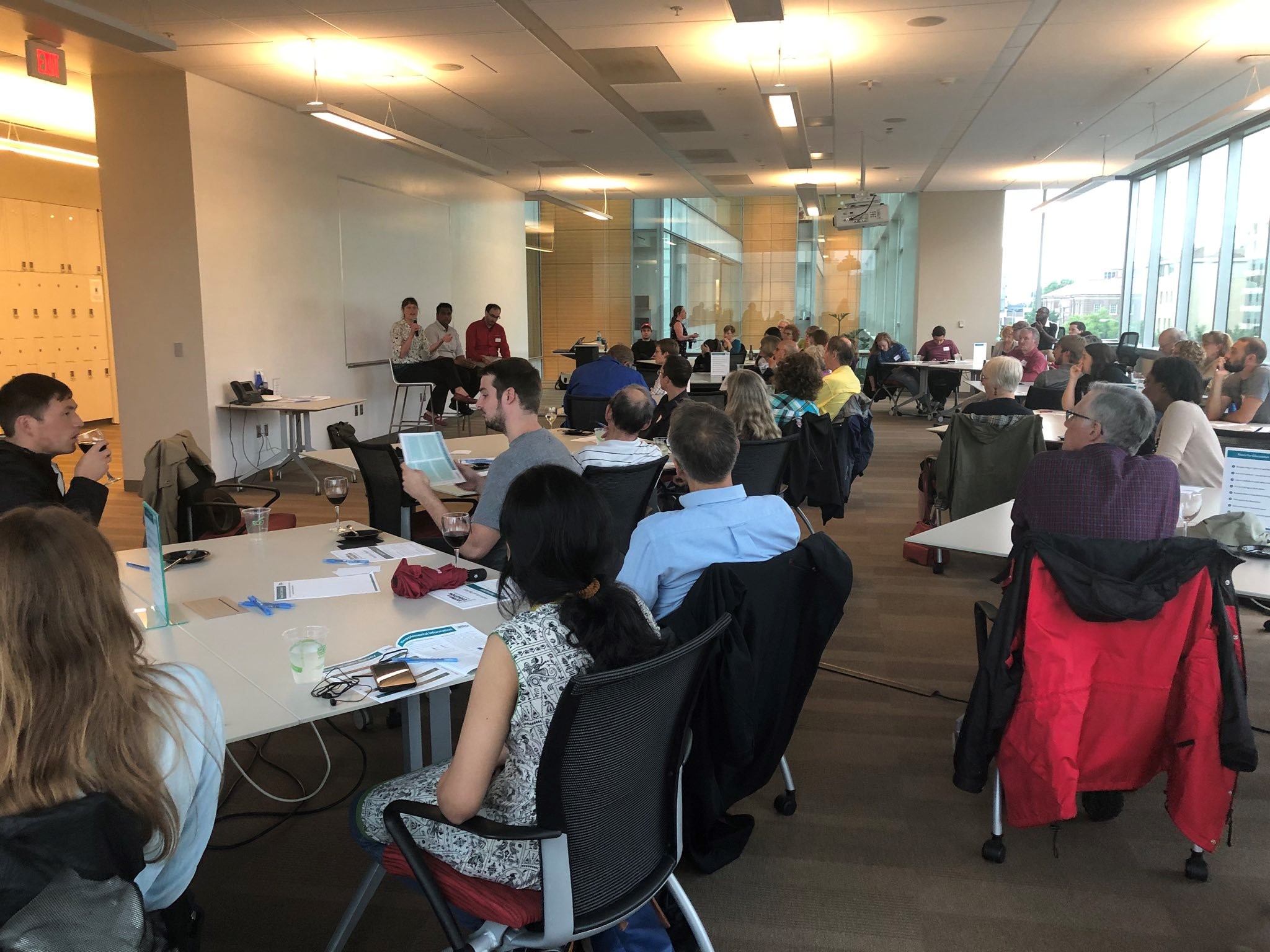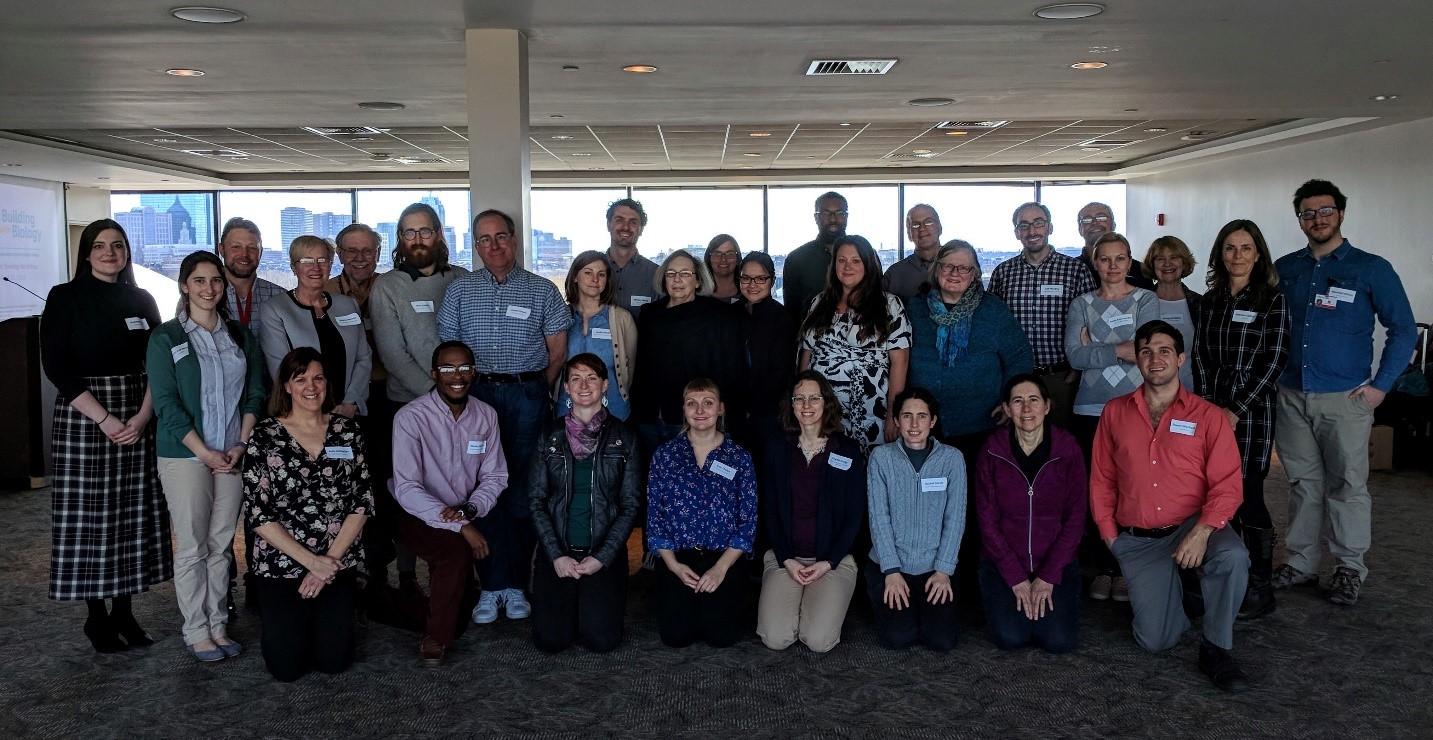The National Academies of Science wrote in their recent 2017 report on Human Genome Editing that "The emergence of CRISPR/Cas9 as a research tool in the area of human genome editing has lent new urgency to calls for a broad public dialogue about these technologies and their applications.” Thanks to an award by the National Science Foundation that provided supplemental support for the Building with Biology project, a group of partners from the NISE Net have facilitated such dialogues about the societal and ethical dimensions of human genome editing technologies at their organizations across the nation this spring and summer.
Editing Our Evolution: Editing the Human Genome Forum Experiences and Outcomes
Organizers at 28 informal science education institutions hosted the project’s newest Editing Our Evolution forum between February and September. Each of these sites received stipends to support organizing a public forum in their community and a physical kit of materials to host a forum for public audiences. Host sites have included universities, science centers, community biolabs, and other kinds of public spaces.
The Editing Our Evolution forum was developed with input from synthetic biologists, social scientists, informal science educators, and other stakeholders. The three forum scenarios each focus on a different case study in which participants consider the perspective of an individual who is affected by a genetic disease. The topics of the scenarios cover the range of possible treatment options that may connect therapies to the realm of human enhancement, issues of equity and access to editing technology, and the difficult question of heritable edits to the genome that would be passed down through human germline cells. Participants consider these questions through careful group discussion, listening to one another’s perspectives and making recommendations individually and as a group. The host organizers are encouraged to invite members of the general public as well as local scientists to consider these questions together.
Many of the forum events featured presentations from local scientists, philosophers, religious leaders, and other perspectives. The forum at the Museum of Science in Boston during the Cambridge Science Festival, which was attended by all of the host organizers from the 28 forum host sites, included a moderated conversation between George Church and Sheila Janasoff from Harvard University. The panelists at the Pensacola MESS Hall’s forum included a local rabbi, an epidemiologist from the local board of health, and two faculty from the biology department at the University of West Florida.
Host organizers have shared their reflections on their experiences hosting forum events. Participants seemed to enjoy the events and had serious and substantive conversations about the societal and ethical considerations raised by the scenarios.
Lauren Van Derzee at the Sciencenter in Ithaca, NY reported that “I think that participants left with more questions and also a greater understanding of the complexity of the societal and ethical effects of human genome editing. A few mentioned that their opinions and thoughts had shifted as well.”
Professor Dave Westenberg at the Missouri University of Science and Technology shared that “Some of my science colleagues were skeptical about how the conversations would go and were presently surprised by how well the forum guided the conversation and not just a free-for-all. The non-scientists were very pleased with the openness of the conversation and the lack of judgmental conversation. Everyone seemed to learn something new and appreciated the ability to find common ground with others.”
Ellen Jorgensen, the Founder of Biotech without Borders in Brooklyn, reported that “Many people came up to me afterwards and thanked me for a great experience. Discussions were passionate but respectful, and I had a hard time getting folks to go home - they kept talking to each other!”
“The event was a wonderful experience,” says Calvin Uzelmeier from Rochester Museum & Science Center, with conversations that “were engaging, respectful, and thought provoking. Participating scientists and non-scientists alike commented on how rich the experience was and when we would be hosting another.”
Many of the organizers reported that hosting a community forum brought new audiences to their institution. For example, Shaun Moshasha, the Director of Open Bio Labs in Charlottesville, Virginia, estimated that “70-80% of the audience was new to our organization, which was fantastic!” Many of the sites are planning to host future Editing Our Evolution forums to broaden the impacts of this effort and engage different public audiences. For example, Kelly Gallagher at SUNY-Oneonta shared that they reprised the forum “the week following our event with high school seniors who are part of a special integrated program for students interested in the health professions… It was interesting to note some of the connections between their opinions and what they had observed during their physician shadowing experiences at a local hospital, particularly with regards to how care is financed. The forum will be also used in seminar classes with science majors on our campus.”
While scientists and the public had the opportunity at each forum to directly share perspectives with one another, the hundreds of responses to the forum questions we’ve collected provide a unique opportunity to learn more about what people at a large group of formal and informal science education institutions across the country think about this fast-emerging technology. The project team is currently analyzing the opinions and recommendations from the Editing Our Evolution forums, and we hope to share a summary of participants’ perspectives and thoughts with members of the scientific community. We know there are many challenges to generalizing these ideas and are being careful about how we look at these data, but with over 500 individual responses collected and analyzed already, we’re excited about what we’re seeing!
The Building with Biology digital kit, which includes all three forums are available for free download and use by anyone on the NISE Net website at http://www.nisenet.org/building-with-biology-kit.
To download the new Editing Our Evolution: Rewriting the Human Genome forum, visit http://www.nisenet.org/catalog/editing-our-evolution-rewriting-human-genome-forum.
We hope you’ll consider facilitating a conversation in your community and contributing to this national dialogue!
A special thanks to the entire Building with Biology project team from the Museum of Science and Rockman et al who contributed to the development, implementation, and research and evaluation for the Editing Our Evolution: Rewriting the Human Genome forum.

